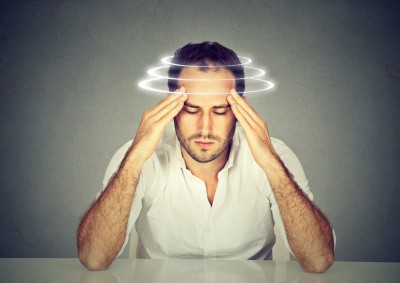Dizziness, Vertigo & Sound Therapy
 What is dizziness or vertigo?
What is dizziness or vertigo?
Dizziness or vertigo is a balance disorder which can cause an individual to feel unsteady, giddy, woosy or to have a sensation of spinning or floating. It can vary from a slight sense of imbalance, to a severe attack where the room seems to spin and the ground falls away beneath you. Vertigo can also refer to a fear of heights, or a sensation that the ground is moving under you.
What causes dizziness or vertigo?
The sense of balance is primarily supplied by the labyrinth of semi-circular canals in the inner ear, called the vestibular system. Little hair cells in the canals, sense the movement of fluid as the head tilts, and inform the brain which way the head is tilting or moving. Our vestibular system works together with our visual system to help us keep objects in focus when the head is moving. Joint and muscle receptors are also important in maintaining balance. The brain then receives, interprets, and processes the information from these systems that control our balance. Ear related dizziness occurs when the vestibular system has faulty function and sends inaccurate signals, or the signals are incorrectly interpreted by the brain.
Physical causes of vertigo may include:
- A pressure imbalance in the vestibular system
- Calcium crystals moving about in the labyrinth
- Poor sensory integration in the brain
- Heart rate irregularities or low blood pressure
How Sound Therapy may help
The middle ear contains two tiny muscles, which may play a role in the functioning of the ear. Dr Tomatis theorized that the ear’s ability to adjust and balance the fluid pressure in the inner chambers is also impeded if the stapedius muscle is not fully functional. Sound Therapy music is filtered in a specific pattern so it challenges the ear with constantly alternating sounds of high and low tone. At the same time, low frequency sounds are progressively removed from the music so the ear is reintroduced to high frequencies with the aim of improving the tone and responsiveness of the middle ear muscles. Enhancing middle ear function is thought to correct imbalances in the fluid system of the inner ear and vestibular system. Sound Therapy has also been found to help normalize blood pressure and heart rate irregularities such as bradycardia (slowing of the heart rate due to aging.) This effect may be due to the functional anatomical links between the ear and the vagus nerve. (Porges 2011.)
How Sound Therapy may help dizziness
- Restoring function and tone to the middle ear muscles
- Restoring normal pressure balance in the inner ear chambers
- Improving ability of Eustachian tube to open and close normally
- Improve sensory integration, enhancing balance perception in the brain
Meniere’s vertigo
Dr Tomatis has proposed that Meniere’s vertigo which produces sudden attacks of dizziness is also due to an anomaly in the tension of the stirrup muscle. This muscle may be subject to involuntary twitches, like any other muscle in the body. Such twitching would radically alter the fluid pressure in the inner ear chambers, thus causing havoc with the balance mechanism. The re-toning of the stirrup muscle achieved by Sound Therapy has been known to resolve this condition.
For more information on Sound Therapy for vertigo please refer to the book Sound Therapy:Music to Recharge Your Brain by Rafaele and Patricia Joudry.
Porges (2011). Polyvagal Theory.

